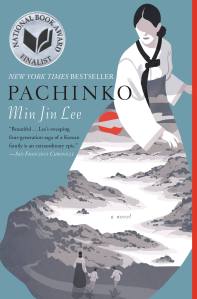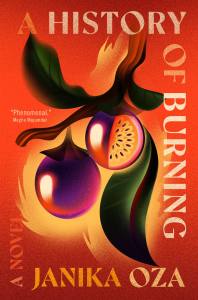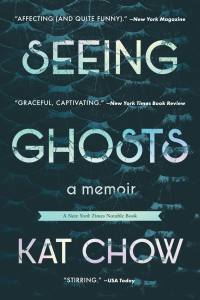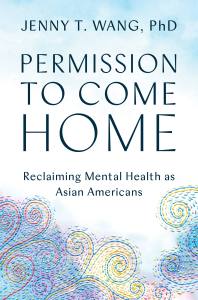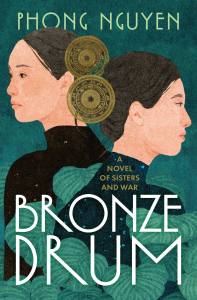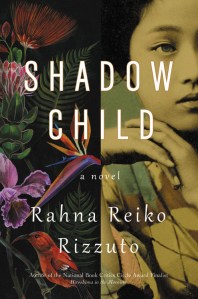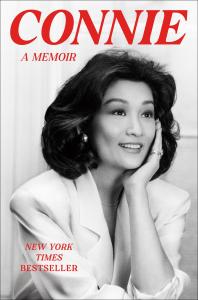8 Must-Read Books for Asian American and Pacific Islander Heritage Month
We’re looking forward to May to celebrate Asian American and Pacific Island Heritage Month (although every month is a good month to read books that support the AAPI community)! From sweeping family sagas to deeply personal memoirs, these books only skim the surface of authors and novels who celebrate the history, culture, lives, and achievements of Asian Americans and Pacific Islander Americans.
In the early 1900s, teenaged Sunja, the adored daughter of a crippled fisherman, falls for a wealthy stranger. When she discovers she is pregnant–and that her lover is married–she accepts an offer of marriage from a gentle, sickly minister passing through on his way to Japan. But her decision to abandon her home, and to reject her son’s powerful father, sets off a dramatic saga that will echo down through the generations.
Profoundly moving, Pachinko is a story of love, sacrifice, ambition, and loyalty.
*Includes reading group guide*
NEW YORK TIMES NOTABLE BOOK OF 2017 * A USA TODAY TOP TEN OF 2017 * JULY PICK FOR THE PBS NEWSHOUR-NEW YORK TIMES BOOK CLUB NOW READ THIS * FINALIST FOR THE 2018DAYTON LITERARY PEACE PRIZE* WINNER OF THE MEDICI BOOK CLUB PRIZE
Roxane Gay’s Favorite Book of 2017, Washington Post
NEW YORK TIMES BESTSELLER * #1 BOSTON GLOBE BESTSELLER * USA TODAY BESTSELLER * WALL STREET JOURNAL BESTSELLER * WASHINGTON POST BESTSELLER
One of the New York Times 100 Notable Books
Longlisted for the Carol Shields Prize for Fiction, the Asian Pacific American Award for Literature in Adult Fiction for 2024
“Remarkable….a haunting, symphonic tale”— New York Times Book Review
In 1898, Pirbhai, a teenage boy looking for work, is taken from his village in India to labor for the British on the East African Railway. Far from home, Pirbhai commits a brutal act in the name of survival that will haunt him and his family for years to come.
So begins Janika Oza’s masterful, richly told epic, where the embers of this desperate act are fanned into flame over four generations, four continents, throughout the twentieth century. Pirbhai’s children are born in Uganda during the waning days of British colonial rule, and as the country moves toward independence, his granddaughters, three sisters, come of age in a divided nation. Latika is an aspiring journalist, who will put everything on the line for what she believes in; Mayuri’s ambitions will take her farther away from home than she ever imagined; and fearless Kiya will have to carry the weight of her family’s silence and secrets.
In 1972, the entire family is forced to flee under Idi Amin’s military dictatorship. Pirbhai’s grandchildren are now scattered across the world, struggling to find their way back to each other. One day a letter arrives with news that makes each generation question how far they are willing to go, and who they are willing to defy, to secure their own place in the world.
A History of Burning is an unforgettable tour de force, an intimate family saga of complicity and resistance, about the stories we share, the ones that remain unspoken, and the eternal search for home.
Kat Chow has always been unusually fixated on death. She worried constantly about her parents dying—especially her mother. A vivacious and mischievous woman, Kat’s mother made a morbid joke that would haunt her for years to come: when she died, she’d like to be stuffed and displayed in Kat’s future apartment in order to always watch over her.
After her mother dies unexpectedly from cancer, Kat, her sisters, and their father are plunged into a debilitating, lonely grief. With a distinct voice that is wry and heartfelt, Kat weaves together a story of the fallout of grief that follows her extended family as they emigrate from China and Hong Kong to Cuba and America. Seeing Ghosts asks what it means to reclaim and tell your family’s story: Is writing an exorcism or is it its own form of preservation? The result is an extraordinary new contribution to the literature of the American family, and a provocative and transformative meditation on who we become facing loss.
AN NPR BOOKS WE LOVE 2021 PICK * A TIME MUST-READ BOOK OF 2021 PICK * A NEW YORK TIMESNOTABLE BOOK OF 2021 * A HARPER’S BAZAAR BOOK YOU NEED TO READ IN 2021 * A TOWN & COUNTRYBEST BOOK OF 2021 PICK * A FORTUNE BEST BOOK OF 2021 PICK
A Cosmopolitan Best Book of 2023 · Readheads Book Club pick
At age 26, Advika Srinivasan considers herself a failed screenwriter. To pay the bills and keep her mind off of the recent death of her twin sister, she’s taken to bartending A-list events, including the 2015 Governors Ball, the official afterparty of the Oscars. There, in a cinematic dream come true, she meets the legendary Julian Zelding—a film producer as handsome as Paul Newman and ten times as powerful—fresh off his fifth best picture win. Despite their 41-year age difference, Advika falls helplessly under his spell, and their evening flirtation ignites into a whirlwind courtship and elopement. Advika is enthralled by Julian’s charm and luxurious lifestyle, but while Julian loves to talk about his famous friends and achievements, he smoothly changes the subject whenever his previous relationships come up. Then, a month into their marriage, Julian’s first wife—the famous actress Evie Lockhart—dies, and a tabloid reports a shocking stipulation in her will. A single film reel and $1,000,000 will be bequeathed to “Julian’s latest child bride” on one condition: Advika must divorce him first.
Shaken out of her love fog and still-simmering grief over the loss of her sister—and uneasy about Julian’s sudden, inexplicable urge to start a family—Advika decides to investigate him through the eyes and experiences of his exes. From reading his first wife’s biography, to listening to his second wife’s confessional albums, to watching his third wife’s Real Housewives-esque reality show, Advika starts to realize how little she knows about her husband. Realizing she rushed into the marriage for all the wrong reasons, Advika uses the info gleaned from the lives of her husband’s exes to concoct a plan to extricate herself from Julian once and for all.
Asian Americans are experiencing a racial reckoning regarding their identity, inspiring them to radically reconsider the cultural frameworks that enabled their assimilation into American culture. As Asian Americans investigate the personal and societal effects of longstanding cultural narratives suggesting they take up as little space as possible, their mental health becomes critically important. Yet despite the fact that over 18 million people of Asian descent live in the United States today—they are the racial group least likely to seek out mental health services.
Permission to Come Home takes Asian Americans on an empowering journey toward reclaiming their mental health. Weaving her personal narrative as a Taiwanese American together with her insights as a clinician and evidence-based tools, Dr. Jenny T. Wang explores a range of life areas that call for attention, offering readers the permission to question, feel, rage, say no, take up space, choose, play, fail, and grieve. Above all, she offers permission to return closer to home, a place of acceptance, belonging, healing, and freedom. For Asian Americans and Diaspora, this book is a necessary road map for the journey to wholeness.
“Dr. Jenny T. Wang has been an incredible resource for Asian mental health. I believe that her knowledge, presence, and activism for mental health in the Asian American/Immigrant community have been invaluable and groundbreaking. I am so very grateful that she exists.”—Steven Yeun, actor, The Walking Dead and Minari
.
A “gripping historical adventure” of ancient Vietnam based on the true story of two warrior sisters who raised an army of women to overthrow the Han Chinese and rule as kings over a united people, for readers of Circe and The Night Tiger (Booklist).
Gather around, children of Chu Dien, and be brave.
For even to listen to the story of the Trung Sisters is,
in these troubled times, a dangerous act.
In 40 CE, in the Au Lac region of ancient Vietnam, two daughters of a Vietnamese Lord fill their days training, studying, and trying to stay true to Vietnamese traditions. While Trung Trac is disciplined and wise, always excelling in her duty, Trung Nhi is fierce and free spirited, more concerned with spending time in the gardens and with lovers.
But these sister’s lives—and the lives of their people—are shadowed by the oppressive rule of the Han Chinese. They are forced to adopt Confucian teachings, secure marriages, and pay ever‑increasing taxes. As the peoples’ frustration boils over, the country comes ever closer to the edge of war.
When Trung Trac and Trung Nhi’s father is executed, their world comes crashing down around them. With no men to save them against the Han’s encroaching regime, they must rise and unite the women of Vietnam into an army. Solidifying their status as champions of women and Vietnam, they usher in a period of freedom and independence for their people.
Vivid, lyrical, and filled with adventure, The Bronze Drum is a true story of standing up for one’s people, culture, and country that has been passed down through generations of Vietnamese families through oral tradition. Phong Nguyen’s breathtaking novel takes these real women out of legends and celebrates their loves, losses, and resilience in this inspirational story of women’s strength and power even in the face of the greatest obstacles.
Twin sisters Hana and Kei grew up in a tiny Hawaiian town in the 1950s and 1960s, so close they shared the same nickname. Raised in dreamlike isolation by their loving but unstable mother, they were fatherless, mixed-race, and utterly inseparable, devoted to one another. But when their cherished threesome with Mama is broken, and then further shattered by a violent, nearly fatal betrayal that neither young woman can forgive, it seems their bond may be severed forever–until, six years later, Kei arrives on Hana’s lonely Manhattan doorstep with a secret that will change everything.
Told in interwoven narratives that glide seamlessly between the gritty streets of New York, the lush and dangerous landscape of Hawaii, and the horrors of the Japanese internment camps and the bombing of Hiroshima, Shadow Child is set against an epic sweep of history. Volcanos, tsunamis, abandonment, racism, and war form the urgent, unforgettable backdrop of this intimate, evocative, and deeply moving story of motherhood, sisterhood, and second chances.
Coming Soon – Preorder now!
Connie Chung is a pioneer. The youngest of ten children, she was the only one born in the U.S., after her parents escaped war-torn China in a harrowing journey to America, where Connie would one day make history as the first woman (and Asian) to co-anchor the CBS Evening News. Profoundly influenced by her family’s cultural traditions, yet growing up completely Americanized, she dealt with overt sexism and racism. Despite this, her tenacity led her to become a household name.
In Connie: A Memoir, Chung reveals behind-the-scenes details of her singular life. From her close relationship with Maury Povich, her husband and professional confidant; to the horrific memory of being molested by the doctor who had delivered her; to her joy of adopting their son when she was almost fifty, she does not hold back. She talks honestly about the good, bad, and ugly in her personal and professional life—this is Connie Chung like you’ve never seen her before.
"This delightful memoir is filled with Connie Chung’s trademark wit, sharp insights, and deep understanding of people. It’s a revealing account of what it’s like to be a woman breaking barriers in the world of TV news, filled with colorful tales of rivalry and triumph. But it also has a larger theme: how the line between serious reporting and tabloid journalism became blurred."—Walter Isaacson, New York Times bestselling author
AN INSTANT NEW YORK TIMES AND USA TODAY BESTSELLER • A NEW YORK TIMES EDITOR'S PICK • A LA TIMES AND PEOPLE BEST BOOK OF THE MONTH
